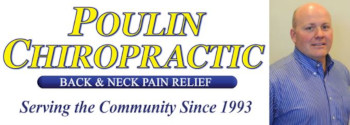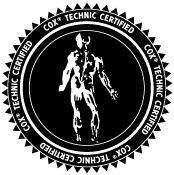Poulin Chiropractic of Herndon and Ashburn keeps up on nutrition so we can keep up with you!
Chiropractic nutrition ideas aren't all just about nutritional supplements. Many Ashburn and Herndon chiropractic patients are very good about feeding their bodies well enough without supplementation|are pretty adept at making sure that they are eating the right foods so they don't need dietary supplements. Poulin Chiropractic of Herndon and Ashburn admires that and is dedicated to bringing you the latest nutritional information. And this month, we're talking about magnesium.
Now, magnesium is everywhere in nutrition literature for so many things and everywhere in our skeletal system! Two thirds of all the magnesium in our bodies is found in our bones! (1,2). Some of the pertinent literature about magnesium reports that
- Low serum magnesium levels predict one’s cardiovascular mortality risk. (3)
- Magnesium promotes sciatic nerve regeneration (a very interesting fact for your Ashburn and Herndon chiropractor!). (4)
- Magnesium’s suppression of the inflammatory responses may even prevent the death of Schwann cells, the cells that insulate nerves (another great bit of information for your Ashburn and Herndon chiropractor!). (4)
- Just 100 mg of magnesium more per day reduced stroke risk by 8%, particularly ischemic stroke. (5)
- Magnesium plays a vital role in the relaxation and contraction of muscles as well as bone formation and energy production. (6)
So if magnesium is so beneficial, how do we get it into our Ashburn and Herndon diets best? Well, eating is a good start!
 Magnesium is found in whole grains and nuts and beans and green, leafy vegetables. The top food source for magnesium is spinach and Swiss chard. Then, mustard greens, green beans, halibut, and molasses rank well. Salmon, bell peppers, celery, cantaloupe and seeds are good, too. (1)
Magnesium is found in whole grains and nuts and beans and green, leafy vegetables. The top food source for magnesium is spinach and Swiss chard. Then, mustard greens, green beans, halibut, and molasses rank well. Salmon, bell peppers, celery, cantaloupe and seeds are good, too. (1)
But be careful with nuts and seeds. Don't go for the salted and sweetened ones though they are quite tasty! Plain old, natural nuts like almonds, cashews, peanuts, macadamia, sunflower, sesame and pumpkin are best. Even butters like almond and peanut are good if the whole nut is used. (1)
Preparation is key. Try to eat the vegetables as close to raw as possible. Spinach and navy beans lose 1/3 to 2/3 of their magnesium when boiled or blanched. (1)
Beans are tasty and add variety to your diet. Soybeans are tops for magnesium, but kidney, navy, split pea, and lentils are good, too.
No matter how you decide to get your magnesium, just eat and enjoy! We can check if you have any signs of magnesium deficiency that may require a more aggressive nutritional approach, too. Otherwise, as in chiropractic, natural is best! Contact Poulin Chiropractic of Herndon and Ashburn to discuss your magnesium status and how chiropractic care is beneficial, too.


